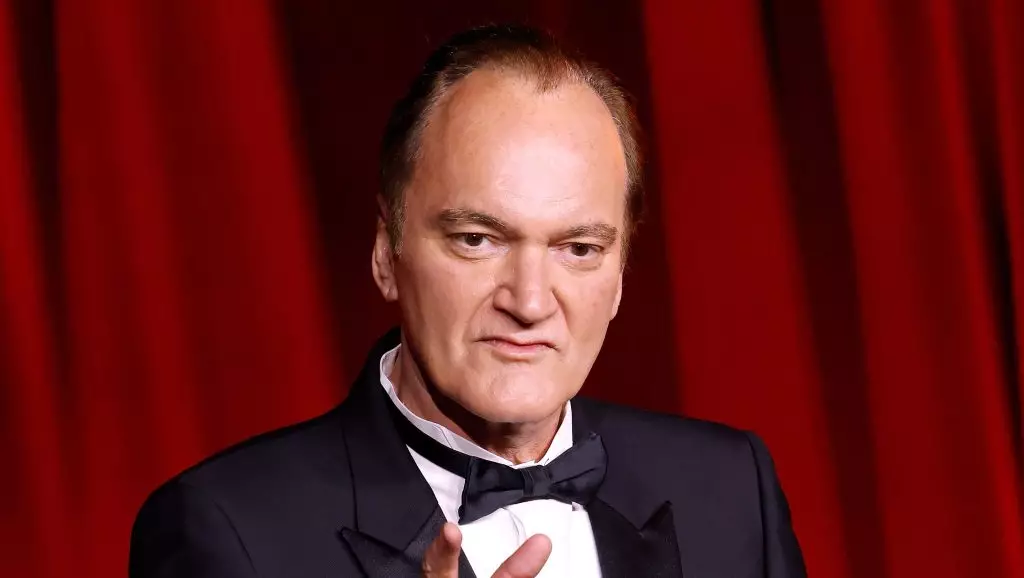Quentin Tarantino’s recent confession about retreating from “The Movie Critic” exposes a troubling inconsistency between the myth of auteur perfection and the harsh realities of filmmaking. The legendary director, celebrated for his sharp dialogue and genre-defying storytelling, revealed that despite being “very happy” with his original script, he ultimately chose not to pursue the project. This decision, cloaked in the language of artistic integrity, actually underscores a more inconvenient truth: even the most talented creators are susceptible to wavering motivation and strategic compromises. His avoidance of “The Movie Critic” is less about artistic failures and more about the cruel, pragmatic realities that often dictate creative pursuits.
Since Tarantino’s career is built on crafting provocative, engaging cinema, his admission reflects a broader cultural discomfort with the idea that successful artists often sacrifice passion for commercial or personal safety. His reluctance to start a project that “no one’s waiting for” demonstrates a hesitance rooted perhaps more in self-preservation than in artistic conviction. It’s a candid illustration of how even icons like Tarantino can shackle themselves under the weight of diminishing enthusiasm and the fear of producing yet another forgettable flick. His statement appears to justify retreat as a lofty act of integrity, yet it may also reveal an underlying lack of discipline to push through the inevitable challenges of filmmaking.
Reflections on Misguided Artistic Ambitions
Tarantino’s desire to transform a seemingly mundane profession—being a film critic—into a compelling cinematic universe reveals a curious dilemma: the danger of prioritizing novelty over substance. The concept itself is inherently flawed because it banks on turning an unglamorous, often overlooked industry into something captivating. This reflects a misguided emphasis on novelty at the expense of deeper storytelling or meaningful commentary. As critics, observers, or cinephiles, we often lament the superficiality of mainstream narratives. Tarantino’s ambition, however, points toward a paradox—the aspiration to reinvent something inherently unremarkable as a vessel for profound cinema.
The assertion that making a “boring profession” interesting is “an accomplishment” reveals a certain arrogance masked as artistic challenge. No doubt, viewers enjoy a fresh perspective, but striving to sensationalize everyday roles risks diluting what could have been a sincere exploration of human nature, culture, and societal dynamics. The focus on a critic’s profession appears symbolic of a larger cultural tendency to lionize contrived originality while neglecting the importance of authentic connection and social critique—elements that could elevate such a story beyond the trivial. Tarantino’s own criticism of the project’s prospects hints at a broader dissatisfaction with superficial endeavors that prioritize style over substance.
The Reality of Artistic Disillusionment in Hollywood
Tarantino’s decision to pull the plug on “The Movie Critic,” despite his obvious fondness for the material, underscores a harsh truth about Hollywood: the gap between artistic dreams and commercial realities. Even in an industry built on spectacle, auteurs like Tarantino are not immune to practical thinking. The fact that he felt “not really that excited” during pre-production and recognized that “no one’s waiting” indicates a critical shift in priorities—perhaps maturity, perhaps disenchantment, or simply the understanding that the industry’s demands can overshadow creative vision.
This episode also questions the myth that great directors are tireless warriors relentlessly pursuing their artistic visions. Quite the opposite: it reveals the self-awareness often missing in narratives of cinematic genius. Tarantino’s candid admission that he shifted from writing an eight-part series to a feature film—and then ultimately abandoned that—shines a light on how creativity is continually navigated by internal doubts and external pressures. The supposed “final film” is now in limbo, which further emphasizes how delicate and unstable even the most confident artistic pursuits can be when faced with reality.
A Cautionary Tale for Aspiring Filmmakers and Fans
What lessons can be drawn from Tarantino’s retreat? Primarily, that artistic integrity doesn’t always translate into follow-through. Passion alone is insufficient when confronted with the brutal demands of pre-production, marketing, and audience expectations. Tarantino’s decision reveals a cautious side—one that recognizes the market’s disinterest and perhaps fears that the story being told wouldn’t resonate or wouldn’t be worth the effort. Yet, it also exposes a lingering vulnerability: the tendency to prioritize convenience and comfort over challenging but potentially transformative art.
For fans and aspiring filmmakers, Tarantino’s experience should serve as a sobering reminder that even icons stumble—sometimes poetically, sometimes painfully. The myth of the relentless artist forging ahead regardless of obstacles is just that—a myth. Often, real creativity involves knowing when to step back, reassess, or simply refuse to put something out into the world that doesn’t feel right. Tarantino’s self-criticism and retreat underscore the importance of authentic passion over superficial bravado—a vital lesson in a culture obsessed with productivity, success, and iconic legacies.
In the end, Tarantino’s withdrawal from “The Movie Critic” isn’t merely about a missed project; it’s a reflection of the complex, often contradictory nature of artistic pursuit. It challenges us to reconsider what truly constitutes artistic integrity and forces us to face the uncomfortable reality that even the most celebrated creators are haunted by doubts, compromises, and moments of retreat.

